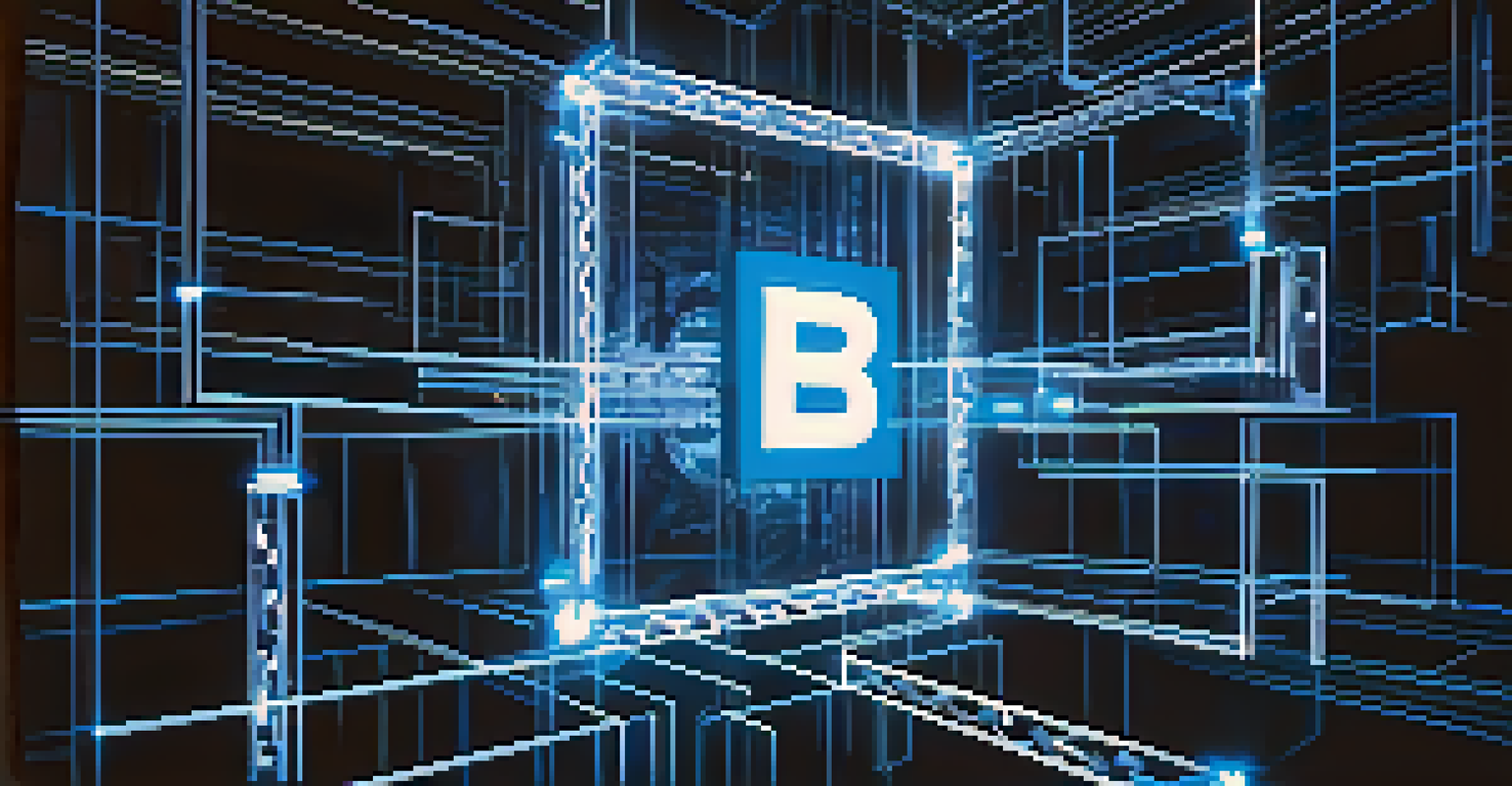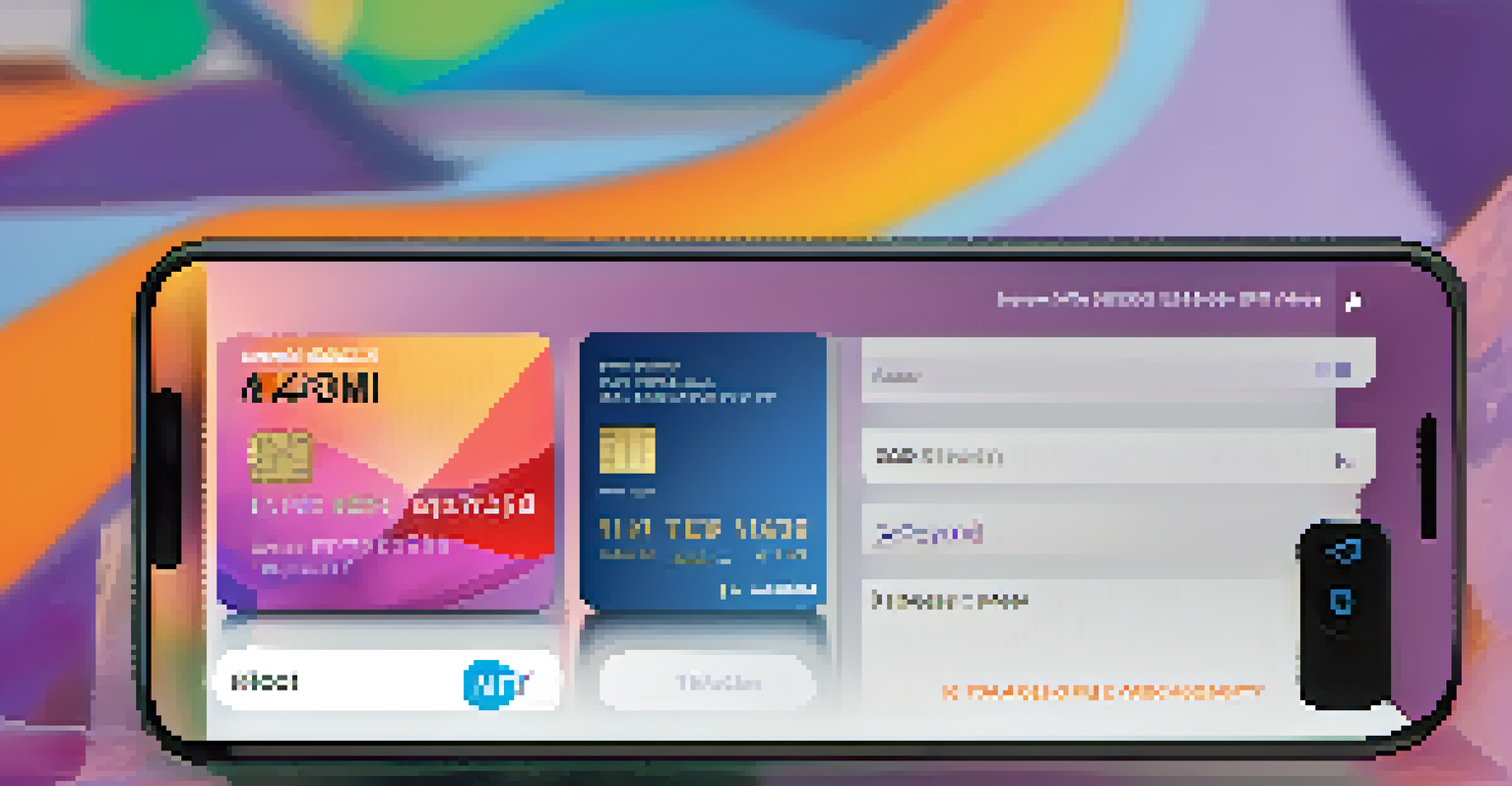The Legal Implications of Smart Contracts in NFT Ownership

What Are Smart Contracts and NFTs?
Smart contracts are self-executing contracts with the terms directly written into code. They operate on blockchain technology, making them secure and tamper-proof. Non-fungible tokens (NFTs) are unique digital assets that represent ownership of specific items, like art or music, on the blockchain.
Smart contracts are like digital vending machines; they automatically execute transactions once the conditions are met.
The combination of smart contracts and NFTs has revolutionized how we think about ownership and transactions in the digital realm. For example, when you purchase an NFT, a smart contract automatically transfers ownership and records the transaction on the blockchain. This transparency is one of the major selling points of NFTs.
However, these technologies also raise important legal questions. As they become more prevalent, understanding their implications for ownership, rights, and obligations is crucial.
Ownership Rights and Smart Contracts
One of the most significant legal implications of smart contracts in NFT ownership is how ownership rights are defined and enforced. When you buy an NFT, the smart contract typically outlines what rights are transferred—like reproduction or resale rights. However, these rights can vary significantly between different NFTs.

For instance, purchasing an NFT of a digital artwork doesn’t always grant you the copyright to the artwork itself. It’s essential to read the terms laid out in the smart contract to understand what you actually own. This ambiguity can lead to disputes, especially if the original creator decides to take legal action.
Understanding Smart Contracts
Smart contracts automate transactions on the blockchain, defining ownership rights and operational terms for NFTs.
As the NFT market evolves, so too does the need for clearer legal frameworks surrounding ownership rights. This is where lawmakers and legal experts are beginning to step in.
Regulatory Challenges in NFT Transactions
The regulatory landscape for NFTs and smart contracts is still in its infancy, which poses challenges for buyers and sellers alike. Different jurisdictions may have varying rules regarding digital assets, leading to confusion. What might be legal in one country could be illegal in another, complicating international transactions.
NFTs are a revolution in ownership; they allow creators to maintain rights while enabling collectors to possess unique digital assets.
Furthermore, the lack of established regulations can make it difficult for creators and buyers to know their rights and obligations. This uncertainty can hinder the growth of the NFT market as potential buyers may hesitate to invest without clear legal protections.
As regulators begin to catch up, it’s vital for stakeholders to stay informed about changes in legislation that could affect their transactions.
Intellectual Property and NFTs
Intellectual property (IP) rights are a crucial aspect of NFT ownership, particularly for artists and creators. When an NFT is sold, the smart contract may or may not include IP rights, leading to potential misunderstandings. Creators need to be clear on what rights they are granting to buyers through the smart contract.
For example, if an artist sells an NFT but retains the copyright, they can still control how the artwork is used or reproduced. However, if the buyer believes they have full ownership, conflicts could arise. This is why defining the scope of IP rights in the smart contract is critical.
Regulatory Challenges Ahead
The evolving legal landscape for NFTs poses challenges due to varying regulations across jurisdictions.
As the market matures, clearer guidelines on IP rights in relation to NFTs will likely emerge. Understanding these nuances will be essential for both creators and collectors.
Fraud and Security Risks in NFT Ownership
Despite the security features of blockchain technology, NFT ownership is not immune to fraud and scams. Phishing attacks, counterfeit NFTs, and hacking of digital wallets are just a few risks buyers face. This reality highlights the importance of vigilance when engaging in NFT transactions.
Moreover, the decentralized nature of blockchain complicates legal recourse in cases of fraud. Unlike traditional transactions, where you might have a clear path to seek justice, the anonymity of blockchain can make it challenging to trace perpetrators.
As the NFT market continues to grow, both buyers and sellers must educate themselves about these risks and adopt best practices to protect their investments.
Dispute Resolution for NFT Transactions
When conflicts arise in NFT transactions, the resolution process can be complex. Traditional legal systems may not be well-equipped to handle the nuances of digital assets and smart contracts. This gap can leave parties unsure of how to proceed when a dispute occurs.
Some platforms offer their own dispute resolution mechanisms, which can be faster and more suited to the digital environment. However, the effectiveness of these systems can vary, and not all platforms have robust processes in place.
Navigating IP Rights in NFTs
Intellectual property rights in NFT transactions can lead to misunderstandings if not clearly defined in the smart contract.
As the NFT ecosystem matures, there is an increasing need for standardized dispute resolution frameworks that can accommodate the unique challenges posed by digital assets.
Future Legal Trends in NFTs and Smart Contracts
Looking ahead, the legal landscape for NFTs and smart contracts is likely to evolve significantly. As more people engage with these technologies, lawmakers will be compelled to create clearer regulations and guidelines. This could lead to a more secure and trustworthy environment for NFT transactions.
Additionally, we may see the emergence of best practices for smart contracts that address common legal issues, such as ownership rights and dispute resolution. This evolution will not only benefit buyers and sellers but also foster innovation in the NFT space.

Ultimately, staying informed and adaptable will be key for anyone involved in the NFT market as the legal framework continues to develop.